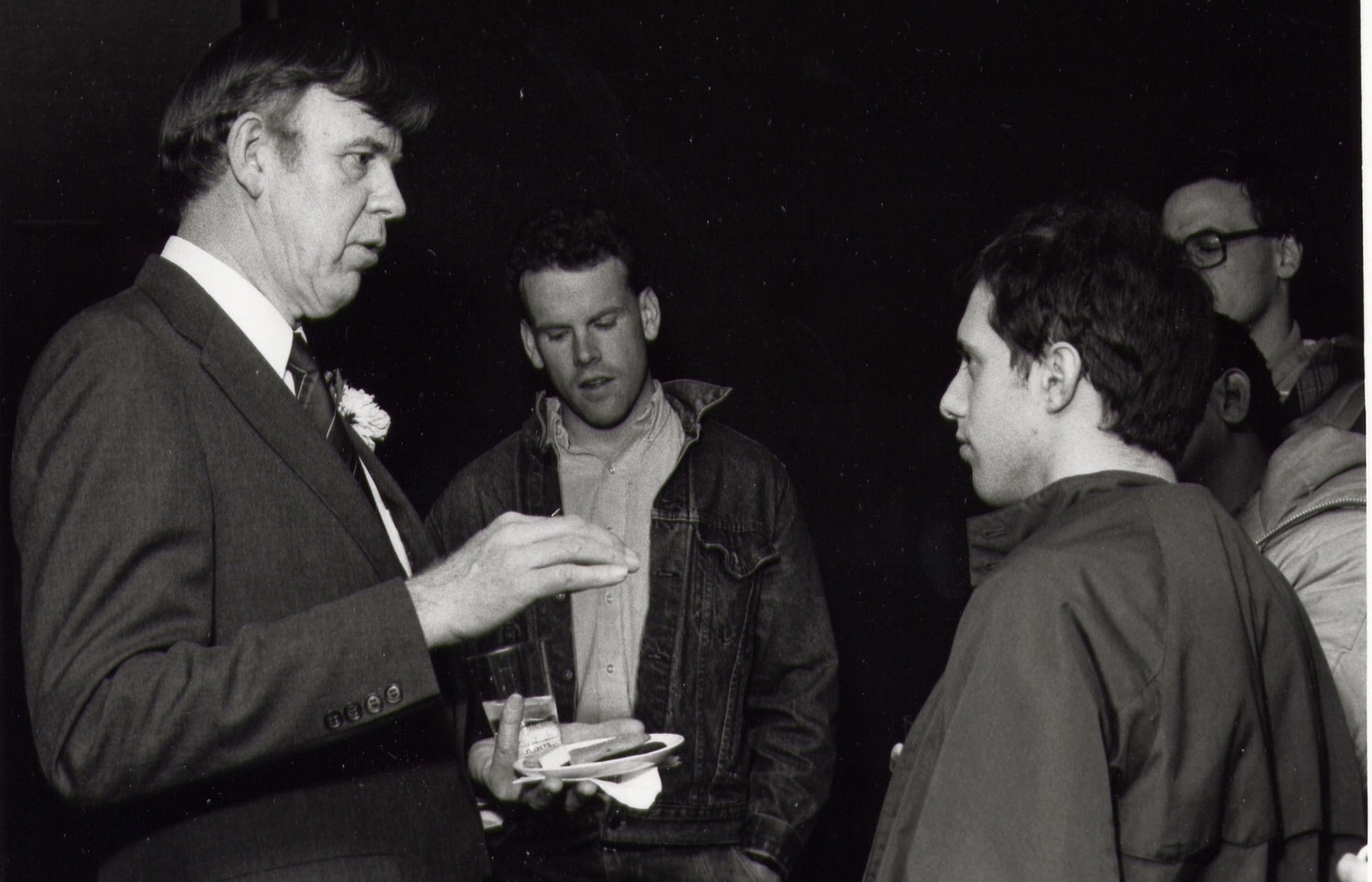Professor David Wyman, 89, historian with heart
Almost every time David S. Wyman delivered a lecture related to his remarkable book, “The Abandonment of the Jews: America and the Holocaust 1941-1945,” someone in the audience would ask: Why would you, a Christian, take such a strong interest in a Jewish issue?
Professor Wyman, who passed away on March 14 at the age of 89, always found the question genuinely puzzling. To him, it was a given that a human being, no matter his or her religious faith, should care, and act, when innocent people are persecuted.
Wyman, a Harvard University-trained historian, was the grandson of two Protestant ministers. He never allowed his personal beliefs to influence his meticulous scholarship. But as his research led him to realize how little Christians in America did in response to news of the raging Holocaust, it shook him to his core. He told me there were times when he “cried for days” over his discoveries and would have to take a break from the research. David Wyman was the most admirable kind of historian: one with a heart.
He was equally pained to learn of the petty intra-Jewish turf wars and personality clashes between American Jewish leaders that undermined the political effectiveness of the Jewish community during the Holocaust. He told me how difficult it was for him to understand why the various Jewish factions did not set aside their quarrels and focus on what was happening to their brethren in Europe. I admitted to him that even after all these years, I, too, have never been able to fully understand it.
In the years before “The Abandonment of the Jews” was published in 1984, the widespread assumption in America was that there was little or nothing that the administration of President Franklin D. Roosevelt could have done to save Jews from the Holocaust. Wyman demonstrated that there were, in fact, many ways the United States could have aided European Jewish refugees.
His groundbreaking research revealed that U.S. planes were within a few miles of Auschwitz and could have bombed it without detracting from the war effort; that immigration quotas were woefully under-filled, even as Jewish refugees were being turned away from America’s shores; and that the Roosevelt administration deliberately suppressed news about the mass murder of the Jews, fearing that publicity would increase pressure on the president to do something to help them.
Wyman’s scholarship has stood the test of time. Some 34 years later, “The Abandonment of the Jews” remains the gold standard in its field. A few diehard FDR partisans have taken potshots at it now and again, but in the end, historical accounts based on political prejudice are no match for historical accounts based on documents.
The book won award after award and Wyman was presented with honorary degrees, inundated with speaking invitations, and featured on major television and radio shows. But what he was most proud of was that his book not only educated Americans about their country’s response to the Holocaust, but helped ensure that another persecuted Jewish community would not be abandoned.
In early 1985, more than 800 Ethiopian Jewish refugees were left stranded and starving along the Ethiopian-Sudanese border after an Israeli airlift operation was interrupted. American Jewish activists, together with California Congressman John Miller, gave copies of “The Abandonment of the Jews” to Vice President George H.W. Bush and his aides, pleading with them to “do now what we didn’t do then.”
As a result, the United States sent a fleet of C-130 Hercules transport planes to rescue the refugees and bring them to Israel. Bush subsequently sent Wyman a handwritten note of thanks for inspiring the rescue mission. The note is proudly displayed in the Wyman family home in Massachusetts.
In 2008, Wyman visited an Israeli air force base, where he met Maj.-Gen. Amir Eshel, who was involved in the 1985 airlift operation, and Moshe Gadaf and Ami Farradah, who, as 8-year-olds, were among the rescued Ethiopian Jewish children. All of us in that room were overcome with emotion as we watched the former child refugees and the Israeli general who helped save them embrace the American historian whose book helped bring about the airlift.
But the failure of the international community to take serious action against contemporary genocides and other atrocities weighed heavily on Wyman. He watched in anguish as the Clinton administration turned a blind eye to the Rwanda genocide; as the Bush (No. 43) and Obama administrations did little to stop the Darfur genocide; and as the United States and its allies have blustered, but failed to act, as Syria’s dictator, Bashar Assad, massacres his own citizens.
Despite those awful failures, David Wyman never lost hope that the international community will one day learn the lessons of the 1940s, so that there will never again be a need to write a book about a defenseless people abandoned by the world.
Dr. Rafael Medoff is founding director of the David S. Wyman Institute for Holocaust Studies and the author of 19 books about Jewish history and the Holocaust.

 78.0°,
Mostly Cloudy
78.0°,
Mostly Cloudy 




